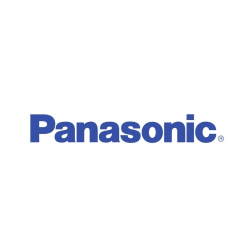 A judge denies Class certification to consumers in a multidistrict litigation who claim Panasonic conspired to fix prices of lithium batteries.
A judge denies Class certification to consumers in a multidistrict litigation who claim Panasonic conspired to fix prices of lithium batteries.
Judge Yvonne Gonzalez Rogers determined that consumers in the Panasonic price-fixing mulitdistrict litigation failed to prove that an inflation in manufacturer prices affected retail prices.
This decision is the latest of several developments in accusations of price-fixing of lithium batteries waged against Panasonic and others.
In 2017, a group of defendants including Sony Corporation, LG Chem Ltd, LG Chem America Inc., Hitachi Maxell Ltd., Maxell Corporation of America, and NEC Corporation agreed to pay $45 million in a settlement over a class action claiming the companies conspired to fix lithium battery prices.
In the Panasonic battery price-fixing class action lawsuit, consumers claimed that a hike in manufacture prices was ultimately borne by consumers, thus overstating damage done to consumers. Gonzalez Rogers argued that the consumers determined that the public bore the cost of the manufacture price hike based on shoddy math, and so determined that their case was unsound.
In her words, “the court finds that [the] estimate of 100% pass-through at each level of the supply chain does not adequately account for the effects of focal point pricing, and therefore fails yield reliable conclusions…As a result, [the consumers] cannot meet their burden to show antirust impact and damages can be established on a class-wide basis.”
Judge Gonzalez Rogers notes that the Panasonic lithium battery price-fixing class action lawsuit fails to take into account the fact that “focal point pricing,” more than the actual cost of an item’s components, determines the price advertised to consumers. She states that consumers often charge just under a round number for an item, like $799.99 for a computer instead of $800, because consumers perceive the former number to be much less than the latter number.
She notes that the financial results of this advertising advantage that retailers gain by this strategy is greater than the financial benefit gained from hiking the price up $2 per item because the manufacturing prices had gone up that much. So, Gonzalez states that retailers might actually make more money selling computers for $799.99 than for $801.99, after applying a $2 price hike to make up for a $2 increase in manufacturing cost. She then goes on to say that this fact shows that the consumers failed to show that Panasonic would receive any benefit from fixing prices.
Judge Gonzalez Rogers states that though the consumers of the Panasonic battery price-fixing class action did show points in the supply chain at which costs could be transferred to consumers, they failed to show that the prices really had been transferred to consumers in this actual, not theoretical situation. Judge Gonzalez Rogers says that she agrees with Panasonic’s argument that the consumers’ case and the analysis they present is “pure theory without any factual support.”
The consumers are represented by Jeffrey L. Kessler, Eva W. Cole, Jeffrey J. Amato, Erica C. Smilevski, and Ian Papendick of Winston & Strawn LLP.
The Panasonic Lithium Battery Price-Fixing Class Action Lawsuit is In Re: Lithium Ion Batteries Antitrust Litigation, Case No. 4:13-md-02420, in the U.S. District Court for the Northern District of California.
ATTORNEY ADVERTISING
Top Class Actions is a Proud Member of the American Bar Association
LEGAL INFORMATION IS NOT LEGAL ADVICE
Top Class Actions Legal Statement
©2008 – 2025 Top Class Actions® LLC
Various Trademarks held by their respective owners
This website is not intended for viewing or usage by European Union citizens.















4 thoughts onJudge Denies Class Cert. in Panasonic Battery Price-Fixing Lawsuit
Please add me to the list
Please add me
Yes I need to be added. Thanks
Yes please add me!